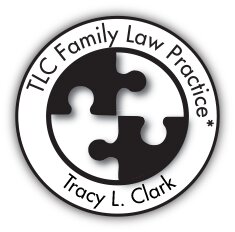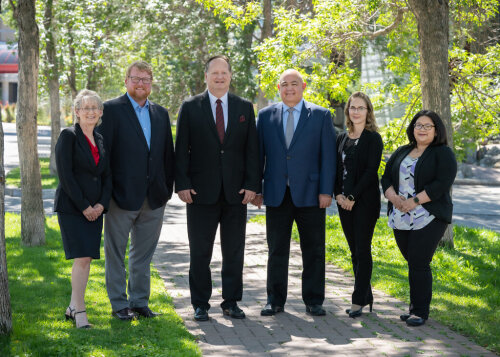Best Appeal Lawyers in Prince George
Share your needs with us, get contacted by law firms.
Free. Takes 2 min.
List of the best lawyers in Prince George, Canada
About Appeal Law in Prince George, Canada
Appeal law in Prince George, Canada, is an integral part of the legal system that provides an opportunity to challenge and potentially overturn court decisions. This area of law involves requesting a higher court to review and change the decision of a lower court. Appeals are typically about legal errors that occurred during the trial, misunderstandings of the law, or the misapplication of the law. As a hub in British Columbia, Prince George has access to several legal resources and courts that handle appeals, making it essential for residents to understand their rights and procedures for appealing a court decision.
Why You May Need a Lawyer
There are several situations where you might require the expertise of a lawyer specializing in appeals:
- If you believe there’s been a legal error in your trial, whether procedural or concerning the interpretation of the law, a lawyer can help identify and articulate these issues.
- The appeals process is complex, involving strict timelines and detailed legal submissions. A lawyer’s guidance ensures that these procedures are correctly followed.
- For strategic advice on whether an appeal is the best course of action, as pursuing an appeal can be time-consuming and costly.
- To increase the chances of a successful appeal by presenting a well-prepared case to the appellate court.
Local Laws Overview
Appeals in Prince George, as part of the British Columbia province, adhere to the provincial and federal laws governing appeals. Here are some key aspects:
- Time Limits: There are specific deadlines for filing an appeal. Generally, a notice of appeal should be filed within 30 days from the decision of the lower court.
- Grounds for Appeal: Appeals are generally limited to issues of law or procedural fairness, and new evidence is rarely considered unless it meets specific criteria.
- Appellate Courts: Appeals from the Provincial Court go to the Supreme Court of British Columbia, while appeals from the Supreme Court go to the Court of Appeal of British Columbia.
- Standard of Review: Appellate courts apply different standards of review for findings of fact, legal issues, and discretionary decisions.
Frequently Asked Questions
What is the first step in filing an appeal?
The first step is to file a Notice of Appeal with the appropriate appellate court within the required timeframe, which is usually 30 days from the lower court’s decision.
What are common grounds for an appeal?
Common grounds include errors in law, errors in the application of law, and procedural errors during the trial.
Can I introduce new evidence during an appeal?
Generally, new evidence is not allowed on appeal unless it is considered exceptionally relevant and could not have been presented at the initial trial.
What are the potential outcomes of an appeal?
Possible outcomes include the appellate court upholding the original decision, reversing the decision, ordering a new trial, or changing the terms of the decision.
How long does the appeal process take?
The appeal process can vary, but it often takes several months to a year or more from start to finish, depending on the court's schedule and complexity of the case.
Is it possible to appeal a decision from the Court of Appeal?
Further appeal to the Supreme Court of Canada is possible, but it requires permission (leave to appeal), which is granted only for cases of national significance or involving important legal questions.
How much does an appeal cost?
Costs can vary widely based on the complexity of the case and the duration of the appeal. Legal fees and court costs should be discussed with a lawyer beforehand.
Can I represent myself in an appeal?
While it's possible to represent yourself, it is not recommended due to the complexity of legal procedures and the potential impact on the outcome of your appeal.
What if I miss the deadline to file an appeal?
You may apply for an extension of time, but it will require showing a valid reason for the delay, and there is no guarantee it will be granted.
What role does an appellate lawyer play compared to a trial lawyer?
An appellate lawyer focuses on identifying and arguing legal errors from the trial, drafting legal arguments, and presenting those arguments in a higher court. This is distinct from a trial lawyer who handles the original case presentation and trial proceedings.
Additional Resources
For further assistance, consider reaching out to the following resources:
- Legal Services Society of British Columbia: Provides legal aid and resources for individuals seeking legal help.
- Law Society of British Columbia: Offers a lawyer referral service to connect you with a professional suited to your needs.
- B.C. Court of Appeal: For jurisdiction-specific rules and procedures related to appeals.
Next Steps
If you need legal assistance in an appeal, consider the following steps:
- Consult with a lawyer specializing in appeals to discuss the specifics of your case and get professional advice.
- Gather all relevant documentation from your trial to aid in the preparation of your appeal.
- Understand the costs involved and plan financially for the appeals process.
- Ensure you meet all deadlines and procedural requirements to avoid dismissal of your case on technical grounds.
- Follow your lawyer's guidance and cooperate in preparing the appeal to increase the likelihood of a favorable outcome.
Lawzana helps you find the best lawyers and law firms in Prince George through a curated and pre-screened list of qualified legal professionals. Our platform offers rankings and detailed profiles of attorneys and law firms, allowing you to compare based on practice areas, including Appeal, experience, and client feedback.
Each profile includes a description of the firm's areas of practice, client reviews, team members and partners, year of establishment, spoken languages, office locations, contact information, social media presence, and any published articles or resources. Most firms on our platform speak English and are experienced in both local and international legal matters.
Get a quote from top-rated law firms in Prince George, Canada — quickly, securely, and without unnecessary hassle.
Disclaimer:
The information provided on this page is for general informational purposes only and does not constitute legal advice. While we strive to ensure the accuracy and relevance of the content, legal information may change over time, and interpretations of the law can vary. You should always consult with a qualified legal professional for advice specific to your situation.
We disclaim all liability for actions taken or not taken based on the content of this page. If you believe any information is incorrect or outdated, please contact us, and we will review and update it where appropriate.









